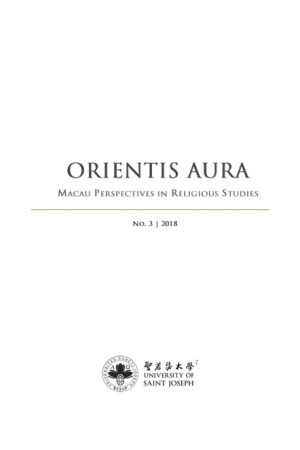Orientis Aura: Macau Perspectives in Religious Studies 2018

Editorial
The past comes to us in many voices and various manners. Time makes societies forget some of those voices and silence others. Sometimes, for diverse reasons and [motives], cultures, communities, and organizations adopt historical narratives that amplify particular voices. Despite these “strategic” and “calculated” choices, history, like all the other social sciences, does maintain the capacity to revise earlier iterations of itself. That is how we can now rediscover the forgotten voices, and rehabilitate some of the silenced ones.
The historical narrative of the appearance and spread of Christianity in South East Asia, but also in China, Japan, and Korea, comes to us in a polyphonic manner. However, the interpretation of those various voices isn’t always harmonious. The particular case of Macau, and the affirmation of Catholicism in South East Asia more generally, offers a challenging example of how the diversity of voices from the past can also bleed into the present. Untangling the debate among and between the diverse perspectives, both past and present, is a significant challenge for any researcher to navigate and understand as anything but a cacophony! It is a task that requires humility from researchers: all voices are relevant.
Even today we can still find forgotten and silenced voices. However, we know that voices often echo far longer than expected. It is from these lesser-known Portuguese Jesuit missionaries in China, that we can uncover a new perspective and learn how, even today, the past is never a closed matter. This issue of Orientis Aura, focusing on “The Other Half. Portuguese Voices from the China Mission” manifests the importance of the less known voices to understand our present.
João Eleutério, Chief-Editor









